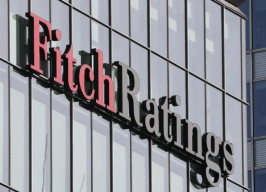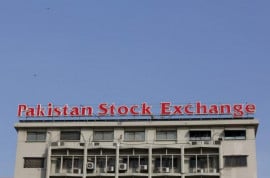
Do you know that close to 3,000 soccer pitches of forest is lost every hour? Or that the richest 1% now owns half of the world’s wealth? Or that $24 trillion will be transferred from baby boomers to millennials over the next 10 years?
These are all trends that feed into the bourgeoning world of environmental, social and governance (ESG) management around the globe.
ESG assets, which are defined as those investments where environmental, social and governance screens are employed to “weed out bad apples”, are estimated to cross $50 trillion by 2025. That is a third of global assets under management in the next few years.
There are a number of developments driving the ESG craze. In 2019, the European Parliament introduced the first legislation on sustainability disclosures in the financial sector – better known as SFDR.
In 2020, the “Big 4” accounting firms launched their unified ESG metrics. In the same year, the Chartered Financial Association (CFA) Institute launched its first-ever global consultation on ESG.
My uncle, Meraj Ahmed, a former partner at one of the “Big 4” accounting firms, says, “It looks like ESG is what happened with IT security 30 years ago. It started off as a niche movement, then picked up pace, and then suddenly became mainstream.”
One day ESG integration into the financial markets may be so common that it won’t be called ESG investing anymore, just investing.
So, what about the sceptics, who say “This is just ‘greenwashing’, no one really cares about environment or social issues.”
Let’s take a look at some data. While reviewing the academic literature on sustainability and corporate performance, the University of Oxford and Arabesque showed that 90% of 200 studies conclude that good ESG standards lower the cost of capital, 88% show that good ESG practices result in better operational performance and 80% show that stock price performance is positively correlated with good sustainability practices.
If that isn’t convincing enough for you, Harvard Business Review says firms with good ESG practices have greater competitive advantage, are able to manage risks better, foster more innovation, build customer loyalty and attract and retain better employees.
Do I still have any sceptics reading this? Let’s look at the reporting and disclosure side of the equation (something close to my heart).
In the S&P 500, there has been a 400% growth in ESG reporting over the last about a decade. In addition, according to EY’s Institutional Investor Survey 2020, 98% of institutional investors evaluate non-financial disclosures (this is up from around 60% in 2016).
Finally, I have to include this because of my personal love for private equity – over 50% of private equity firms say they have used ESG in price negotiations in the case of mergers and acquisitions.
So, what does this all mean? It means that over the next 5-10 years, companies, investors, financial institutions and governments, which do not employ and promote well-thought-out ESG practices, will not be taken seriously on the global stage.
For Pakistan, this simply means that organisations such as the Pakistan Stock Exchange, Securities and Exchange Commission of Pakistan (SECP), State Bank and Pakistan Institute of Corporate Governance (PICG) must come together with a long-term game plan for ESG integration into publicly-traded as well as privately-run corporations.
This would include detailed strategies for the stock exchange and ideally a plan for small and medium enterprises (SMEs) as well.
Luckily PICG, under its new leadership, has taken some initiatives in this regard and is trying its best, with limited resources, to carry the mantle of ESG with its inherent governance linkages. However, this is not enough. The trends described above are significant enough for women and men business leaders in Pakistan to look at ESG seriously.
With Pakistan government’s new poster child image for climate change, there is an opportunity, that instead of being laggards in best practices, Pakistan boldly and swiftly invests in the ESG wave and shows itself as a leader in this space, if not globally, at least in the South Asian region.
Some time ago I read a piece, I think it was about the Spanish Armada (history buffs forgive me if I’m mistaken, I’m not a history expert), which went something like this: At the time of Spanish Armada, when people saw scouting ships close to the port of Calais, they thought to themselves “Here are just a bunch of small ships, nothing to worry about.”
However, if they had read between the lines, they would have thought, “Scouting ships might mean battle ships behind them,” ie, they might have been even better prepared.
A towering ESG wave can be seen in the horizon. Is Pakistan ready to ride it?
The writer is a doctoral researcher at the University of Waterloo on ESG & Private Capital Markets and founder of ESGTree.com, a tech start-up platform
Published in The Express Tribune, June 28th, 2021.
Like Business on Facebook, follow @TribuneBiz on Twitter to stay informed and join in the conversation.











1722244248-0/tlprrt-(1)1722244248-0-270x192.webp)







COMMENTS
Comments are moderated and generally will be posted if they are on-topic and not abusive.
For more information, please see our Comments FAQ